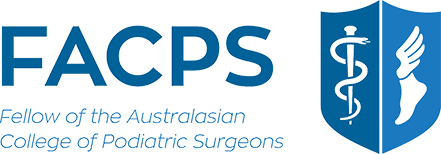Patient Info
All the essential information for new and current patients.
For appointments, please ring (08) 9250 1676
New patients visiting us are required to complete a New Patient Information Form. This form can be downloaded below and printed. Please complete and return the form (by email) or bring it along with you to your appointment.
Please bring any foot-related medical imaging (x-rays, CT scans, Bone scans, Ultrasound or MRIs) with you to your appointment.
Preparing for surgery
Once you have decided to proceed with surgery, it’s important that you ask as many questions as possible to ensure you understand the procedure, any risks associated with the surgery, possible complications, the recovery process and, most importantly, your expectations of the surgery.
Part of the pre-operative assessment involves a discussion on any current medical conditions, along with your medication profile, and discussion about your general medical and surgical history.
Surgery can be a big undertaking, both physically and emotionally. Doing all you can to prepare yourself for the interruption to your normal daily activities, as well as making the recovery as easy as possible, is really important.
The surgery part is probably the easiest part of the process, but the recovery can be trying. By understanding the role you play in the post-operative period we are able to work together towards the best outcome for you, and minimise any complications along the way. This includes keeping your body fit and healthy before surgery, and having a well-balanced nutritional diet both before surgery and afterwards.
Smoking increases the risks of all post-operative complications. It is best to stop smoking altogether if possible, from at least 2 weeks before surgery and for the duration of the immediate post-operative period, approximately 8 weeks after surgery. If you cannot stop smoking, cutting down is the next best thing. Talk to your GP about strategies to help you with this.
Your surgeon will see you a number of times in the post-operative period and it’s important that you follow their guidance and instructions. After-hours contact phone numbers will be provided to you, and we encourage you use these if you have concerns.
Try to have everything set up for your recovery before you have your surgery. If you read the post-operative instructions you will be able to have some idea of what to expect following your procedure and what you will need to do.
Simple things like:
- Have a plastic chair to sit on whilst in the shower and another plastic chair to rest your leg onto so that the task of keeping your dressings dry is much easier. If you have a hand-held shower this will make the task easier too.
- Organise to have a cordless (or mobile) phone available so you are able to keep this within easy reach.
- Have pre-prepared meals in the freezer and organise online shopping or have a friend help with these tasks.
- Have some pillows available to rest your leg on, or set up a recliner so that you are able to rest with your leg elevated.
- Have a stable chair available, preferably with arm rests, so that you are not unsteady when getting up and down.
- Put items that you use regularly within easy reach, and check there are no hazards for falling around the house (loose cords or carpets).
- If you have stairs, talk to us about the best way to negotiate these during your recovery period.
Remember to follow the pre-surgery anaesthetic instructions. This means fasting (no food or drink) for a period of time before surgery – the exact time will be given to you in your information pack prior to surgery or advised by your anaesthetist. If you are having your surgery under local anaesthesia (you will not be asleep) then you will not be required to fast.
If you are having day surgery you will not be able to drive home, or drive for at least 24 hours after your surgery so it’s best to make alternative arrangements in advance.

